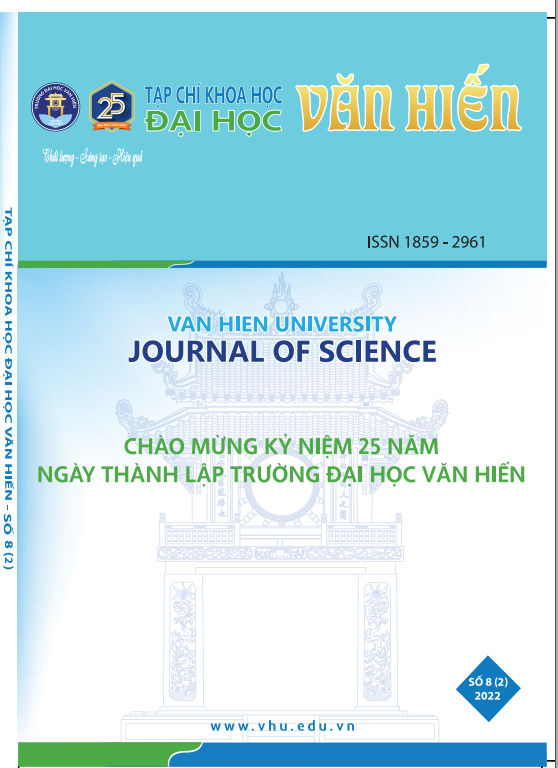Origin and meaning of the various concepts of maize of Vietnam’s ethnic groups Origin and meaning of the various concepts of maize of Vietnam’s ethnic groups
Main Article Content
Abstract
Article Details
References
De Béhaine, P.P. (1773). Dictionarium Anamitico Latinum. Tự vị Annam Latinh. Hồng Nhuệ Nguyễn Khắc Xuyên dịch và giới thiệu (1999). Thành phố Hồ Chí Minh, Nxb Trẻ.
De Rhodes, A. (1651). Dictionarium Annamiticum - Lusitanum - Latinum. Từ điển Annam - Lusitan - Latinh. Thanh Lãng, Hoàng Xuân Việt, Đỗ Quang Chính phiên dịch (1991). Hà Nội, Nxb Khoa học Xã hội.
Đỗ Đức Hùng, Nguyễn Đức Nhuệ, Trần Thị Vinh và Trương Thị Yến (2001). Việt Nam những sự kiện lịch sử (Từ khởi thuỷ đến 1858). Hà Nội, Nxb Giáo dục.
Hoàng Phê (Chủ biên), Bùi Khắc Việt, Chu Bích Thu, Đào Thản, Hoàng Tuệ, Hoàng Văn Hành, Lê Kim Chi, Nguyễn Minh Châu, Nguyễn Ngọc Trâm, Nguyễn Thanh Nga, Nguyễn Thúy Khanh, Nguyễn Văn Khang, Phạm Hùng Việt, Trần Cẩm Vân, Trần Nghĩa Phương, Vũ Ngọc Bảo, Vương Lộc (2003). Từ điển tiếng Việt (In lần thứ 9). Hà Nội - Đà Nẵng, Nxb Đà Nẵng & Trung tâm Từ điển học.
Hoàng Văn Ma và Lục Văn Pảo (1984). Từ điển Việt-Tày-Nùng. Hà Nội, Nxb Khoa học Xã hội.
Huình Tịnh Paulus Của (1895). Đại Nam quấc âm tự vị. Saigon, Imprimerie Rey, Curiol & Cie. Tp. Hồ Chí Minh, Nxb Trẻ in lại (1998).
Lê Quý Đôn (1773). Vân Đài loại ngữ. Trần Văn Giáp (Biên dịch và khảo thích), Trần Văn Khang (Làm sách dẫn), Cao Xuân Huy (Hiệu đính và giới thiệu) (2006). Hà Nội, Nxb Văn hoá - Thông tin.
Nguyễn Văn Chỉnh (chủ biên), Cư Hoà Vần và Nguyễn Trọng Báu (1996). Từ điển Việt - Mông (Việt - Hmôngz). Hà Nội, Nxb Văn hoá Dân tộc.
Nguyễn Văn Khang (Chủ biên), Bùi Chỉ và Hoàng Văn Hành (2002). Từ điển Mường - Việt. Hà Nội, Nxb Văn hoá Dân tộc.
Võ Xuân Trang (Chủ biên), Đinh Thanh Dự (2011). Văn hoá dân gian của người Nguồn ở Việt Nam. Hà Nội, Nxb Khoa học Xã hội.



